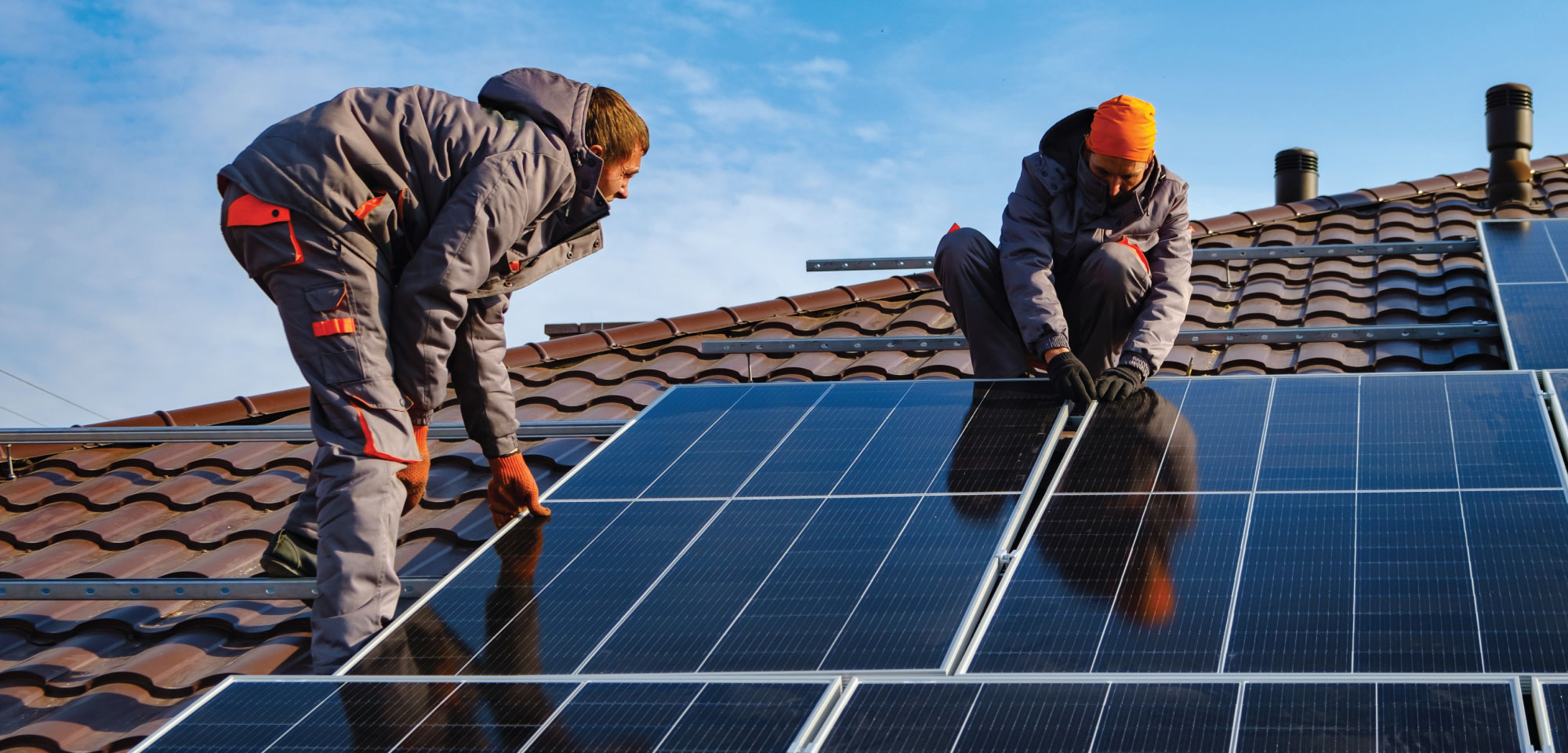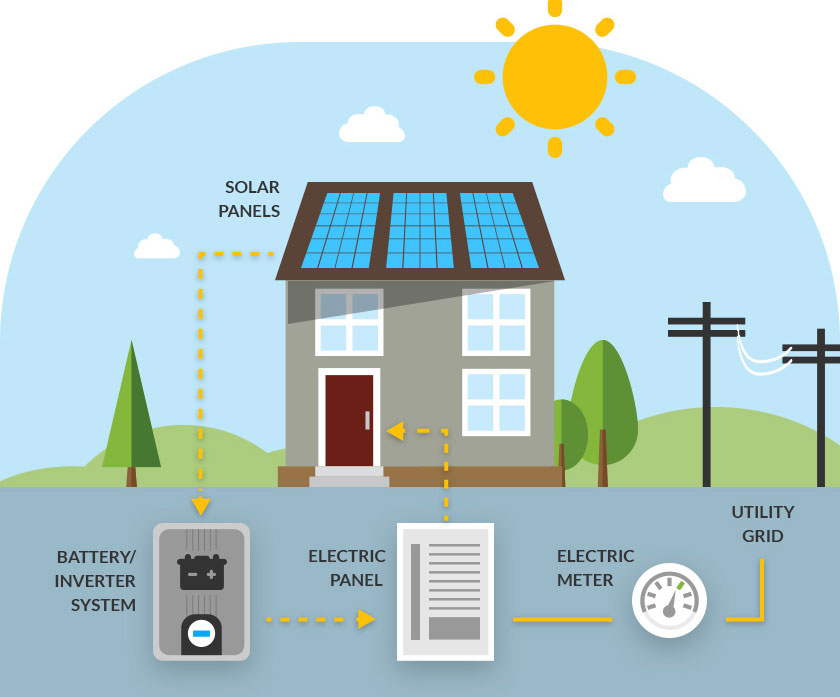Top Rated Solar Companies Virginia: Lumina Solar Focuses On Supplying Advanced Photovoltaic Solutions For Residences And Companies
History and Founding
Have you ever wondered how a solar panel company springs from a mere spark of motivation into a powerhouse of eco-friendly energy? It frequently begins with a vision-- one fueled by a mix of innovation, determination, and a pinch of serendipity. The journey of many solar business mirrors the advancement of the technology itself: from large, ineffective panels to sleek, high-efficiency marvels harnessing the sun's bounty.
The Early Days
In the late 20th century, when solar energy was still a specific niche principle, pioneers planted seeds for what would become a global motion. Think of a small workshop filled with curious engineers, relentlessly experimenting with photovoltaic cells. Their enthusiasm was palpable, often driven by a desire to fight environment modification and minimize dependence on fossil fuels.
One such anecdote is about a creator who, influenced by an outdoor camping journey, realized that even in remote locations, the sun might power vital gadgets. This simple observation sparked a company's mission to equalize access to tidy energy.
Founding Principles

- Innovation: Continuously pressing the boundaries of solar innovation to improve effectiveness and sturdiness.
- Sustainability: Devoting to environment-friendly manufacturing and reducing carbon footprints.
- Availability: Making renewable resource options cost effective and practical for everyday users.
Turning points in Development
| Year | Key Event |
|---|---|
| 1985 | Business established in a small garage, focusing on research and development. |
| 1995 | Industrial solar panel item launched, gaining regional attention. |
| 2005 | Expanded to worldwide markets, embracing global eco-friendly energy objectives. |
| 2015 | Introduced advanced photovoltaic panel innovation with improved energy conversion. |
Isn't it remarkable how these incremental steps, frequently neglected, form the energy landscape today? The solar panel business story is not practically technology; it's about an unrelenting mission for a brighter, cleaner future.

Developments in Photovoltaic Panel Technologies
Ever seen how some solar panels shine brighter and last longer? It's not magic; it's the science of photovoltaic effectiveness. Modern photovoltaic panel companies invest greatly in technologies like bifacial cells, which catch sunshine from both sides, boosting energy harvest without expanding roof area. Have you ever questioned why some panels carry out much better on cloudy days? That's due to advances in thin-film solar innovation, which thrives under diffused light conditions.
Product Variations Customized to Special Needs
One size never ever fits all. Photovoltaic panel suppliers now use:
- Monocrystalline panels for optimum effectiveness and streamlined looks, perfect for space-constrained rooftops.
- Polycrystalline panels, which offer a cost-effective option without sacrificing too much output.
- Building-integrated photovoltaics (BIPV), combining solar tech perfectly into architectural elements like windows and exteriors.
Selecting the right item isn't practically in advance cost; it's about matching your environment, energy objectives, and long-term savings. For instance, homes shaded by trees need panels that stand out in low-light circumstances, something numerous neglect till energy bills climb up suddenly.
Technical Tips for Optimum Selection
- Evaluate the temperature coefficient-- lower worths indicate panels lose less performance on hot days.
- Look for panels with boosted anti-reflective coatings to maximize light absorption.
- Consider the panel's guarantee not just for problems, but for guaranteed power output over decades.
- Do not undervalue the significance of the inverter technology paired with the panels; it can make or break your system's performance.
Beyond Panels: Emerging Patterns
Imagine photovoltaic panels that adjust their angle instantly to go after the sun-- tracking systems are ending up being more accessible, increasing yield significantly. Or solar tiles that mix invisibly into your roofline, transforming your home into a quiet, self-dependent power generator. These innovations are reshaping what a solar panel business offers-- not simply products, but incorporated energy options.
Market Presence and Global Operations
Ever question why some solar panel companies appear to sprout up in every corner of the globe while others hardly make a ripple? The distinction lies not just in innovation but in mastering the art of navigating varied markets. Broadening worldwide is like planting seeds in various climates-- you should understand each environment's unique conditions to flourish.
Take, for circumstances, the detailed dance of logistics and supply chain management. Shipping panels halfway across the world isn't just about range; it's about timing, customs, tariffs, and adjusting to local demand fluctuations. A company with robust global operations expects these variables, ensuring panels show up on schedule without inflating costs. This foresight is no little feat and typically separates market leaders from fans.
Key Strategies for Expanding Market Existence
- Localized production: Developing production hubs near target audience decreases shipping hold-ups and import complexities.
- Strategic partnerships: Collaborating with regional firms speeds up market penetration and builds trust.
- Adaptive item design: Customizing photovoltaic panel tech to weather, sun intensity, and infrastructure subtleties boosts efficiency and approval.
What about the human element? Photovoltaic panel companies operating worldwide need to fix up cultural distinctions and regulative nuances without forgeting their core objective. For instance, what works in a sun-drenched desert may falter in a humid seaside region. Often, the most innovative service is merely listening-- taking in local insights to improve technology and approach.
Experts frequently encourage a phased rollout instead of a shotgun growth. Why risk overextension when measured growth develops sustainable momentum? Scaling sensibly means balancing aspiration with operational durability - Solar Panel Company. After all, in the race for sustainable energy supremacy, patience can be as valuable as speed
Ecological Effect and Sustainability Practices
When solar panels initially emerged, many assumed they carried no ecological baggage. However, the truth is more nuanced. The production of photovoltaic cells includes rare earth metals and energy-intensive procedures, which can leave click here a sizable carbon footprint before the panels even reach rooftops. The real environmental expense depends heavily on the sustainability practices used by the solar panel company throughout the lifecycle of their products.
How typically do we stop briefly to consider what occurs to solar panels at the end of their beneficial life? Unlike batteries or electronic devices, solar panels can last 25-30 years, however disposal and recycling pathways stay underdeveloped in numerous areas. A company committed to lowering ecological harm will have a robust plan for recycling photovoltaic products, restoring important silicon, glass, and metals to prevent garbage dump accumulation.
Key Sustainability Methods
- Using low-impact manufacturing strategies that lessen water and energy consumption.
- Executing closed-loop systems to recycle production waste back into brand-new panels.
- Taking part in transparent supply chain audits to ensure ethical sourcing of basic materials.
- Creating panels for easier disassembly to assist future recycling efforts.
It's worth noting that some solar companies have actually originated ingenious approaches, such as integrating eco-friendly elements or utilizing less toxic chemicals during fabrication. This not just minimizes ecological pressure but also sets a precedent for the industry. The question remains: can the solar market really pivot towards a circular economy model without compromising performance or affordability?
Specialist Tips for Evaluating Sustainability
- Ask about the business's commitment to carbon-neutral production and whether they offset emissions.
- Examine if they partner with certified recycling facilities dedicated to solar panel waste.
- Try to find openness reports detailing environmental impacts and sustainability goals.
- Consider the durability and warranty of panels as an indirect step of resource efficiency.
In the end, opting for solar energy must suggest more than simply slashing electrical energy costs; it's about supporting a future where energy is harvested properly and waste is thoughtfully managed. Solar panel business that welcome this viewpoint not only light up homes but also cast a brighter light on sustainable innovation.